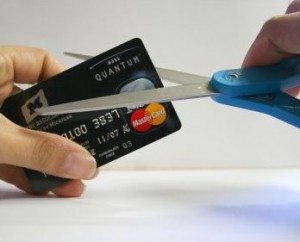I wasn’t expecting to receive a bonus from my employer this year. We’re in a recession, after all. So imagine my surprise when I received a bonus of about a week and a half’s pay. That’s quite a lot of money considering how little we spend.
I find that extra money is a lot easier to control when it’s expected. For instance, we know we’ll receive a tax refund this year. We’ve been anticipating it all year, and we already know where it’s going (savings).
However, when someone hands you a check out of nowhere, it can be tempting to blow it. After all, I was doing fine 5 minutes ago before I received the money. It’s not like I’ll miss it if I just spend it, right?
I have a feeling that no matter how committed I am to frugality, I’ll always have these moments of temptation. In that moment of weakness after I looked at the amount on the check, I started thinking about new furniture, a new TV, and a thousand little, inexpensive things I could use this money to buy. It would be a lot of fun to just blow this money. But then it would be gone, I wouldn’t be any closer to reaching my goals, and I’d regret it.
I quickly reminded myself that we’re in debt, and we’re nowhere near reaching our financial goals. Blowing money on things we don’t need is a good way to keep ourselves from reaching those goals.
So what is the practical side of me considering using the money on? Here are some thoughts I’ve had:
Summer fund
Two months of the year, Tony doesn’t receive a paycheck for teaching. He’ll find a part time job, but chances are it won’t pay as much as his monthly stipend. Last year we adjusted our budget and tightened things up to accommodate for our lower income. I’m considering throwing my bonus into a savings account to help us a little during those summer months of lower income.
Emergency fund
Our emergency fund is about 1/3 of the amount we want. This money could help us beef it up a little.
Debt
This is the least appealing option. After all, my bonus is dwarfed by our $60,000 in student loan debt. However, every little bit does help.
Retirement?
This is a tough one. Tony and I are 24 and 25, and neither of us has a retirement account. We’ve wanted to open a Roth IRA for some time, but it has taken a back seat to debt and savings. I’m considering using this bonus to jumpstart our retirement saving. While I don’t think it’s enough to open an account (I think I need at least $3,000 for that, but I’m not sure), it could at least get us started until we have enough saved to transfer it to a Roth IRA.
While I really want to get started on retirement saving, I’m hesitant since we are considering moving in a year and a half. We really need all of our savings to be liquid so we can use some of it for the move if that’s what we decide to do. So I’m leaning toward putting off retirement savings for another two years until we’re settled down somewhere.
I could use some advice. What would you do?


